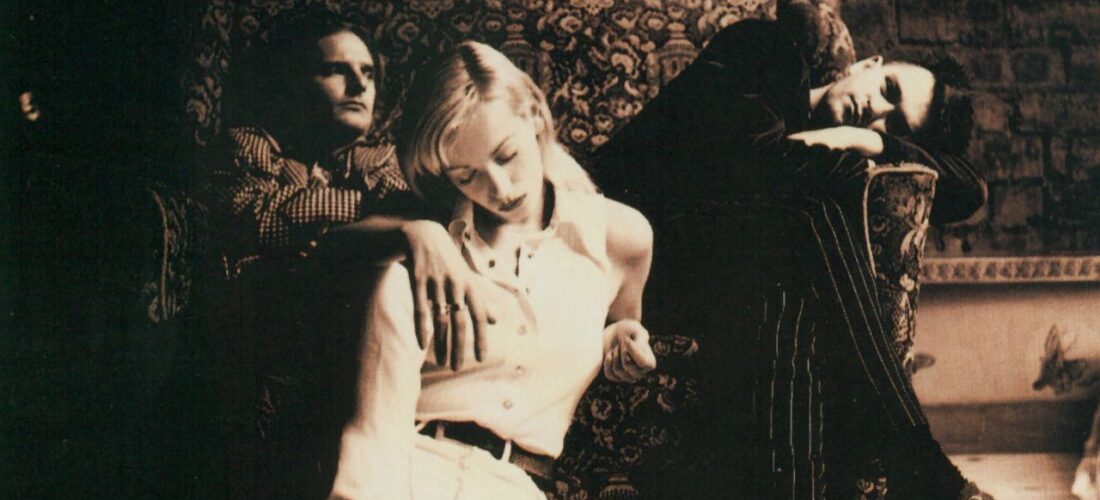The press, in the early ’90s, used a lot of conflicting, if creative, words to describe the music of One Dove. The Scottish band’s 1993 debut album, produced by the DJ and musician Andrew Weatherall, delighted many, disappointed some, and confounded others. Project X magazine, an American publication catering to ravers (which included infamous party monster Michael Alig on staff), put the band’s singer Dot Allison on the cover in a scuba diving suit and declared them to make “some of the most emotion-filled electronic music since the techno-revolution began.” The New York Times called their album “a juxtaposition of eerie, languorous electronics, bleary borderline dance music and quietly torchy pop songs.” The NME, though loquacious, was not convinced. They appreciated that while the band had a “vision of blasting mainstream pop sky high with clubland’s mighty beats and sun-drenched vibes,” ultimately Morning Dove White was “likely to lull you into a light coma.”
Were One Dove here to humanize the mechanical sound of acid house then taking over clubs? Or were their dreamy guitar solos meant to help future-proof the suddenly staid sound of British rock? Was singer Dot Allison a star or a snooze? Was everybody even listening to the same band? To that last point, based on the extensive amount of remixes they released, as well as early album leaks with alternate mixes, it’s possible that, no, they were not.
Regardless, in the 31 years since their sole LP Morning Dove White was released, not too many people have listened to any version of the album. It has been out of print for nearly 25 years, and, until recently, not on streaming services. To add insult to injury, the version available on streaming services now mistakenly repeats track six, “My Friend,” as track seven, “Transient Truth.” “Listen now,” sings Allison on that song, which, if you don’t have a physical copy, you’ll have to head to YouTube to hear, “If you take my words as promises, well then you can keep them.” At least they never felt like they owed anyone anything.
Undoubtedly some of the hype surrounding the album isn’t even of their own making: The band had persuaded Weatherall—renowned for his sledgehammering of genre barriers—to produce their debut. This was immediately after he’d worked with Primal Scream on their groundbreaking album, Screamadelica, which was released to great fanfare during the recording of Morning Dove White. That album’s massive swell, its groundbreaking blend of ecstatic rock guitar work and buoyant house music drum work, became Weatherall’s signature sound. He’d bring some of that in a more subdued form to Morning Dove White. That’s undeniable. Whether he also brought unmeetable expectations is up for debate.
